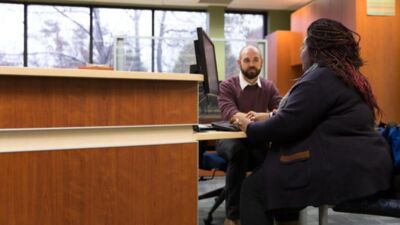What You Should Know about Letters of Recommendation

Upon applying for graduate school, employment, internships and more, it is likely that you will be asked to provide a letter of recommendation at some point. Often, students have questions about recommendation letters – from what they are to why they’re even necessary. This guide is for students who want to know everything there is to know about recommendation letters, whether they’re looking to apply to graduate school in the next year, want to earn a particular scholarship or are looking for their first post-graduation job after college.
What is a letter of recommendation, anyway?
According to Indeed, a letter of recommendation is a formal document that addresses a candidate’s suitability and qualifications for a particular position, whether professional or academic. Students do not write their own recommendation letters; rather, they must seek out persons willing to speak to the student’s capabilities as an external source of verification.
Most often, a recommendation letter will include the writer’s relationship to the letter’s subject as well as a discussion of the subject’s skills and character. Their primary purpose is to serve as a source of information for hiring managers and admissions counselors regarding their potential future employees or students.
Who should I ask for one?
There are typically two types of writers who you should ask for a letter of recommendation: professional and academic. Although many employers, graduate schools and even colleges may accept letters from both types of writers, it often makes more sense to search for one reference type over another.
For example, when looking at graduate schools, college professors who know you and your skills well will be great recommenders. Your boss from your summer job may not be as specific about your academic strengths, however. On the flip side, your boss’s knowledge of you could tell future employers just what they need to know about your work ethic.
When should I ask for one?
There is no hard-and-fast rule regarding when to ask for a letter of recommendation, and suggestions vary based on the reason for needing one. As a general principle, be considerate of your recommenders’ time – don't ask for a letter two weeks before an application is due. Instead, ask well ahead of time, usually at least a month before a deadline. If you can give your recommenders more time, try to do so.
How should I ask for one?
If possible, it’s best to ask for a letter of recommendation in person. As a college student asking for graduate school or employment purposes, stop by a professor’s or boss’s office or schedule a time to meet with them. As a high school student who may be requesting a letter for acceptance into one of Concordia’s Scholars programs, talk to your teacher after class. Always state your request politely and respectfully, in a way that shows that you care about their time and are not demanding anything of them.
Once a recommender has agreed to your request, follow up with any information they request from you and make sure that you stay in touch with them throughout the process. After they write you a letter, thank them and show your appreciation for their time.
Asking for a letter of recommendation can be intimidating but knowing the reason you’re asking and why you want a letter from a particular person can make the process easier. With these tips in hand, you can confidently seek out the letters of recommendation that might mean your acceptance into a dream graduate program or job.
Concordia University, Nebraska promises students a Lutheran, Christian higher education that equips them not only with skills and a degree, but also a sense of vocation and purpose for the future. It emphasizes the importance of the Gospel and is a Christ-centered community of believers and academics. Learn more about applying to Concordia here.
Interested in career resources at Concordia University, Nebraska?
Related Stories


